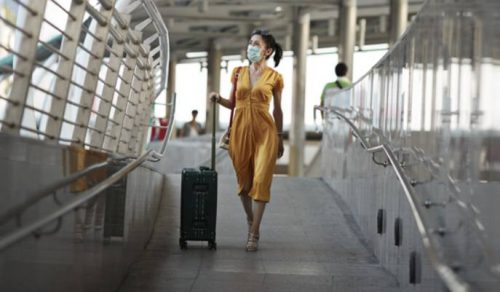European Commission Decisions Out of Touch with Reality, Damages Sustainability
 Geneva, Switzerland, July 24, 2021 / TRAVELINDEX / The International Air Transport Association (IATA) branded the European Commission’s (EC) decision to set the winter slot use threshold at 50% as “out of touch with reality,” and argued that the EC had ignored the advice and evidence presented by EU member states and the airline industry, which had made the case for a much lower threshold.
Geneva, Switzerland, July 24, 2021 / TRAVELINDEX / The International Air Transport Association (IATA) branded the European Commission’s (EC) decision to set the winter slot use threshold at 50% as “out of touch with reality,” and argued that the EC had ignored the advice and evidence presented by EU member states and the airline industry, which had made the case for a much lower threshold.
The EC’s announcement means that, from November to April, airlines operating at slot-regulated airports must use at least half of every single series of slots they hold. There is no alleviation to hand back slots at the start of the season allowing airlines to match their schedule to realistic demand or enable other carriers to operate. Additionally, the rule on ‘force majeure’, by which the slot rule is suspended if exceptional circumstances related to the COVID pandemic are in effect, has been switched off for intra-EU operations.
The result of these changes will be to restrict the ability of airlines to operate with the agility needed to respond to unpredictable and rapidly changing demand, leading to environmentally wasteful and unnecessary flights. It will also further weaken the financial stability of the industry and hinder the recovery of the global air transport network.
“Once again the Commission has shown they are out of touch with reality. The airline industry is still facing the worst crisis in its history. The Commission had an open goal to use the slots regulation to promote a sustainable recovery for airlines, but they missed. Instead, they have shown contempt for the industry, and for the many member states that repeatedly urged a more flexible solution, by stubbornly pursuing a policy that is contrary to all the evidence presented to them,” said Willie Walsh, IATA’s Director General.
The Commission’s argument is that the intra-EU traffic recovery this summer justified a 50% use threshold with no alleviation. This flies in the face of significant evidence of the uncertain outlook for traffic demand this winter, provided by key EU member states as well as IATA and its members. For example:
- The extent of intra-EU recovery is at best only a partial indicator of the extent of recovery at slot-constrained airports, where the key slots are needed for global traffic connections which have not yet recovered. IATA estimates that international travel will only reach 34% of 2019 levels by end of 2021 (see chart 1 below).
- Winter demand always tracks below Summer demand, even in good years. And the evidence of forward bookings is that they are trending well below levels seen last Winter (see chart 2). Long haul bookings for the EU are currently averaging 20% of 2019 levels.
- Despite the roll-out of vaccines, governments continue to be extremely cautious about opening borders. Their response to variants of concern is still to close borders or instigate quarantine measures which instantly kills travel demand. It is clear that European air travel demand is still extremely weak and unpredictable (Chart 3).
Other regulators around the world have understood the arguments. Regulators in the UK, China, Latin America and Asia-Pacific have put much more flexible measures in place. Only the EU has dogmatically insisted that traffic will return at a rate far beyond any reasonable forecast.
“There is a rich irony that only a week after the Commission released its ‘Fit for 55’ carbon emissions plan, it publishes a slots regulation that may force airlines to fly regardless of whether sufficient demand for that route exists. Transport Commissioner Valean said ‘We need to act with ambition for our planet, but without punishing our citizens or businesses.’ Clearly, this decision on slots fails to meet these conditions,” said Walsh.
